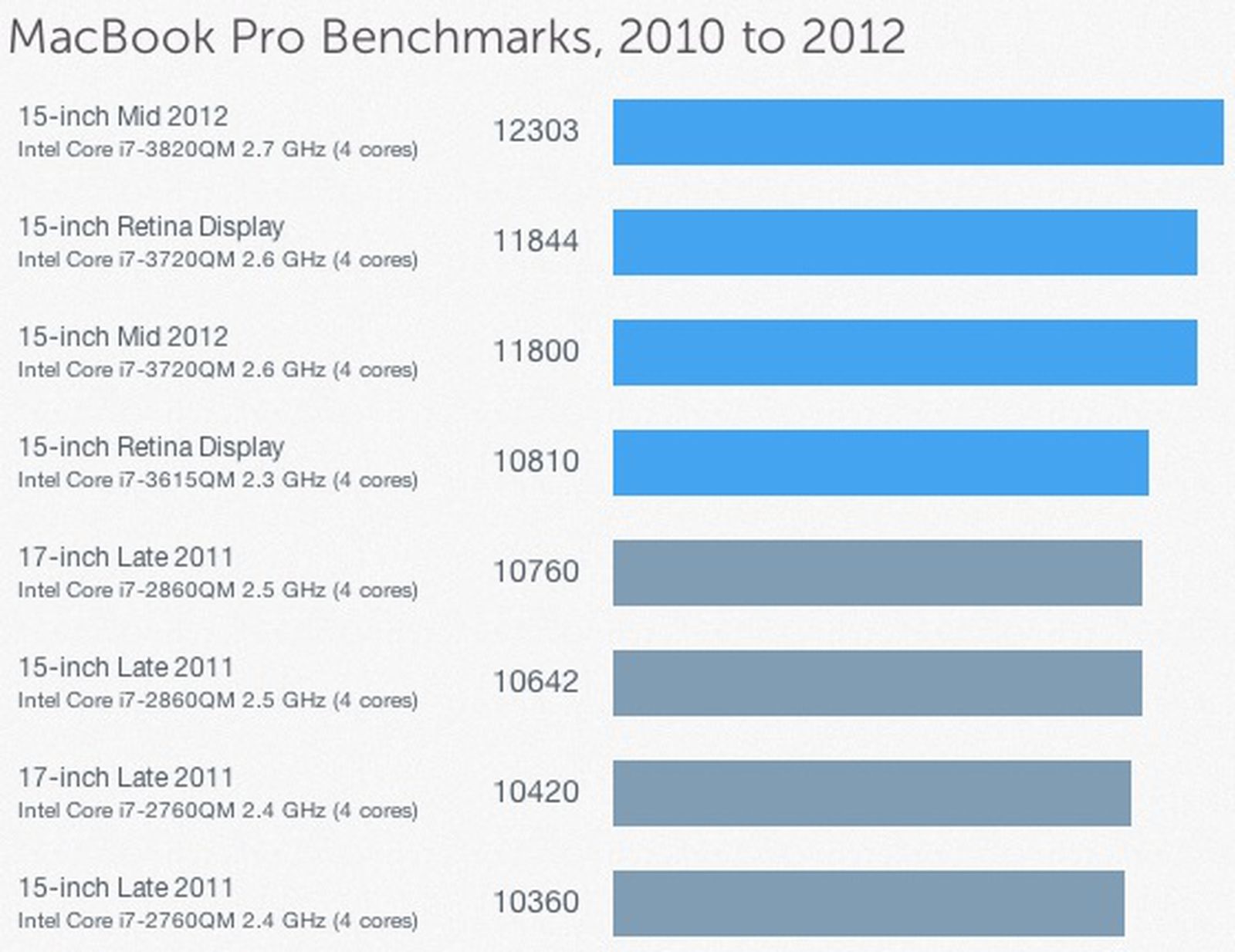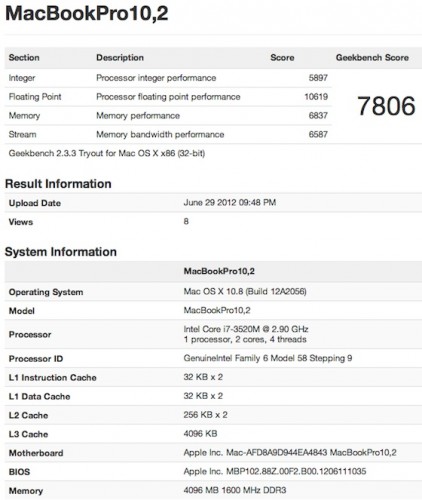

#GEEKBENCH MAC PRO UPGRADE#
OWC’s Mac Pro 2013 Processor Upgrade GeekBench Scores

Mac Pro 2013 (Mac Pro6,1) running OS X 10.9.1 Config. The M1 Pro in the previous-generation 14-inch and 16-inch MacBook Pro scored a single-core score of 1,734 and a multi-core score of 10,076 compared to a single-core of 1,952 and a multi-core.

On its website, Apple compares the new chip to the 16-core. OWC’s Mac Pro 2013 Processor & Memory Upgrade GeekBench Scores To give us a better idea of that performance, a Geekbench test shows that Apple’s latest chip beats the 28-core Intel Mac Pro. The MacBook Pro 16-inch 2021 we tested with an M1 Max chip, 64GB of RAM and a 2TB SSD lasted. We will continue to submit our findings to this listing as we are able to perform more testing with additional processors.Ĭheck out our list of GeekBench benchmarking scores below: Geekbench results Single-core score: Mutli-core score: MacBook Pro 16-inch M2 Max: 1,944: 15,044. For everything else, there's the Intel Core i9-13980HX and AMD Ryzen 9 7945HX.After confirming that the processor in the new 2013 Mac Pro is user upgradeable, we’ve had more time for testing. We have been able to test various processors with both the stock 16GB of memory from Apple installed and with 64GB of OWC memory installed in the new Mac Pro. Geekbench Scores M1 (8-core) Single: 1742 Multi: 7582 M1 Pro (8-core) Single: 1767 Multi: 9948 M1 Max (10-core) Single: 1764 Multi: 12380 The base model 14-inch MacBook Pro with an 8-core. In the Geekbench 5 benchmark, the Apple M2 achieved a result of 1,874 points (single-core) or 8,853 points (multi-core). That said, the M2 Pro and M2 Max should offer enough processing power to chew through most video-related workloads. A new M2 Max benchmark has surfaced on Geekbench ahead of Apples rumored MacBook Pro 2023 models, revealing performance improvements over the M1 Max. With no M2 Ultra coming anytime soon, the M2 Max will be the best Apple SoC on the market, at least until the 3 nm M3 and its derivatives are out and about. One can attribute the M2 Pro's stellar performance increase in part to Apple's chip designing prowess and the improved TSMC N5P node it is manufactured on. Even the better-specced M1 Max (1,780/12,656) falls flat against the M2 Pro, although an apples-to-apples comparison between the two would be unfair given the latter features two extra E cores.Furthermore, Geekbench is a CPU-intensive test and the M1 Max will almost certainly flex its muscles in a more GPU-bound scenario. That represents a 10% increase over the last-gen M1 Pro (1,769/12,499) in single-core performance and a 20% increment in multi-core. The Apple M2 Pro scores 1,952 and 15,013 points in the Geekbench single and multi-core tests, respectively. One of the outstanding features offered by this. It has shown up on the benchmarking platform (via MacRumors) alongside a Mac Mini. Geekbench is a multiplatform benchmarking application to do performance tests to the memory and processor. To do so, open Armoury Crate and head to Settings > Operating Mode > GPU Settings and change graphic.

Nonetheless, the M2 Pro is shaping up to be quite the powerhouse, as confirmed by a recent Geekbench listing. For overall CPU performance, the new Mac Pros 6,999 base. Usually, Apple reveals its hardware with much fanfare and one can't help but wonder why this launch was so low-key. Apple's decision to silently launch its new M2 Pro and M2 Max SoCs come off as a tad puzzling. The new MacBook Pro 16 machines fall behind the 18-core iMac Pro in Cinebench R23 multi thanks to the eight extra cores the Intel Xeon W-2191B processor brings with it, but when it comes to. The chart below compares the performance of Intel Xeon CPUs, Intel Core i7/i9 CPUs, AMD Ryzen/Threadripper CPUs and AMD Epyc with multiple cores. A new M2 Max benchmark has surfaced on Geekbench ahead of Apple's rumored MacBook Pro 2023 models, revealing performance improvements over the M1 Max.


 0 kommentar(er)
0 kommentar(er)
